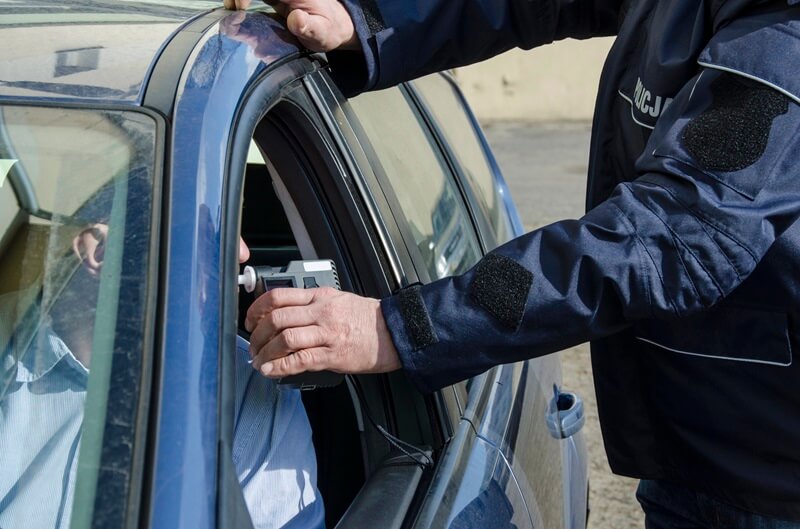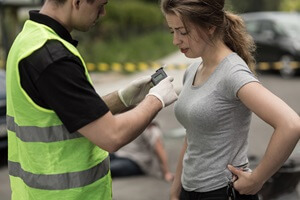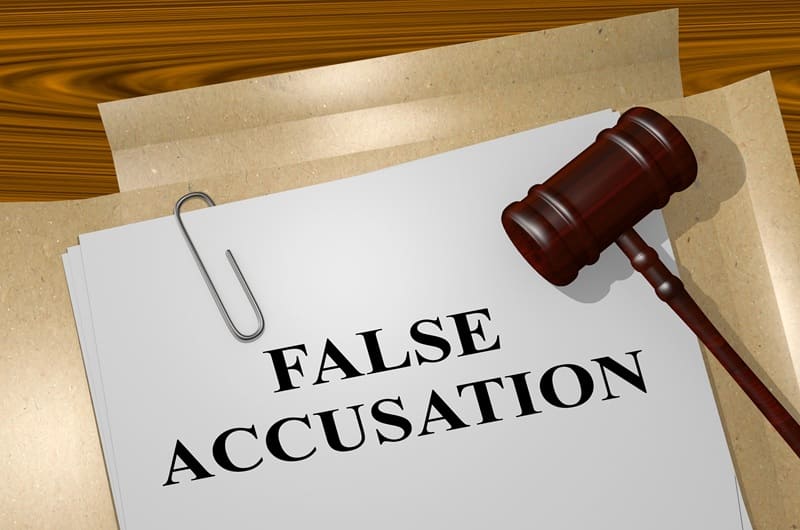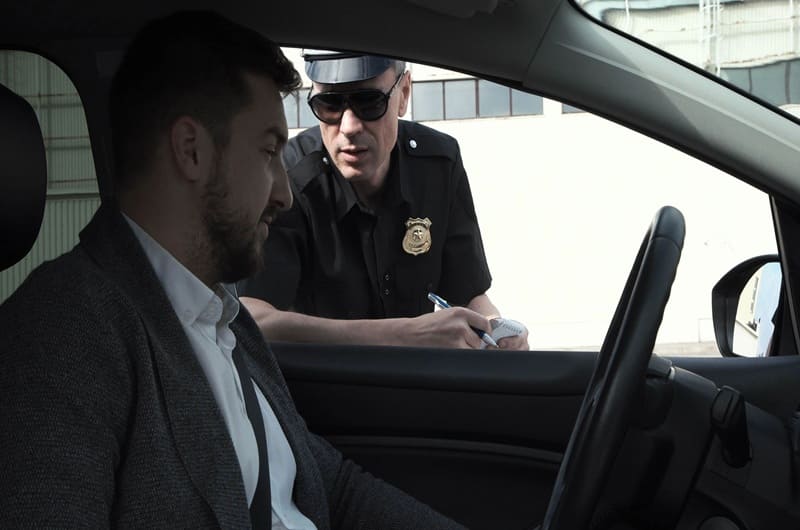What Happens If You Refuse A Breathalyzer Test In Virginia?
What Happens If You Refuse A Breathalyzer Test In Virginia?
Imagine you’re driving down a quiet road when you’re pulled over by law enforcement for suspected drunk driving. The officer asks you to take a breathalyzer test—but what if you refuse? In Virginia, refusing a breath test can have serious consequences, even if you’re not guilty of DUI or driving under the influence.
This article helps you understand your rights and the potential penalties for refusal. You’ll learn about Virginia’s DUI statutes, including the implied consent law. Moreover, you’ll see how a defense attorney can help you handle this challenging situation.
Overview Of Virginia’s DUI & Implied Consent Law
Driving under the influence (DUI) is a severe offense in Virginia with harsh penalties aimed at preventing impaired driving. A DUI charge applies when a driver operates a vehicle with a blood alcohol concentration (BAC) of 0.08% or higher or while visibly impaired by drugs or alcohol.
Virginia’s implied consent law supports DUI enforcement by requiring drivers to complete to chemical testing if arrested for driving under the influence. By driving on public roads, you are consenting to take a breath or blood test when an officer has probable cause.
When drivers refuse an evidentiary test, they breach implied consent laws, triggering legal and administrative penalties. The law discourages refusal, ensuring drivers comply with testing requirements when lawfully detained. Refusing a test may seem like a viable option, but the consequences can often outweigh the benefits.
Implied consent laws are complex but essential to understand. Knowing how they intersect with refusal penalties helps you make informed decisions. This is particularly vital when considering the consequences of refusal, which can significantly impact your driving privileges and legal standing.
Consequences Of Refusing A Breathalyzer Test
Refusing a breathalyzer in Virginia triggers administrative and criminal penalties that escalate with repeat offenses. Additionally, this can lead to higher financial costs and restrictions on driving privileges. Understanding these consequences highlights the importance of building a robust defense strategy.
Administrative Penalties
Refusing a breathalyzer test can incur an automatic suspension of your driver’s license. A first-time refusal leads to a one-year suspension, enforced under Virginia’s implied consent laws. This penalty is administrative and separate from any DUI charges.
For second or subsequent refusals, the penalties become harsher. The license suspension period increases, and you may face additional restrictions. Such penalties aim to deter repeat offenses while encouraging compliance with testing requirements.
Criminal Penalties
Refusing a breathalyzer test can result in escalating penalties based on prior offenses. A first refusal triggers a mandatory one-year license suspension without eligibility for a restricted license. A second refusal within ten years becomes a Class 2 misdemeanor, punishable by up to six months in jail, a $1,000 fine, and an additional license suspension.
For a third or subsequent refusal within ten years, the offense escalates to a Class 1 misdemeanor, Virginia’s most severe misdemeanor category. This carries penalties of up to one year in jail and a $2,500 fine. These charges are separate from DUI penalties and often strengthen the prosecution’s case in court.
Additional Impacts Of Refusal
Beyond legal penalties, refusing a breathalyzer test can have lasting financial consequences. Insurance companies view refusal as a red flag, leading to significant increases in your premiums. Over time, this financial burden can add up, affecting your overall stability.
Another impact is the difficulty in obtaining restricted driving privileges. While some drivers qualify for a restricted license during DUI suspensions, refusal penalties often limit this option. Managing work and family responsibilities becomes challenging without the ability to drive legally.
Recognizing these outcomes emphasizes the need for a solid defense against refusal charges. Transitioning from understanding consequences to exploring defenses ensures you are better prepared to protect your future.
Legal Strategies A Defense Lawyer Employs For Your Case
Facing charges for refusing a breathalyzer test can feel taxing, but defenses are available to protect your rights. These defenses target flaws in the arrest process, testing equipment, and procedural violations by law enforcement. Understanding your options ensures you can build a solid argument to challenge the allegations.
Lack Of Probable Cause
Law enforcement must establish probable cause before arresting or requesting a breath test. Your attorney can challenge the case’s legitimacy if an officer cannot demonstrate valid reasoning for the traffic stop.
For example, an unlawful stop based on vague suspicions would invalidate subsequent actions by the officer. Demonstrating a lack of probable cause undermines the prosecution’s argument and can lead to dismissal of charges.
Medical Inability To Provide A Sample
Certain medical conditions can prevent a person from providing a sufficient breath sample for testing. Conditions such as asthma, chronic obstructive pulmonary disease (COPD), or recent surgeries can interfere with accurate results.
Your attorney can present medical records or testimony to explain why you could not comply. Highlighting a legitimate physical limitation helps dispute allegations of intentional refusal.
Improper Advisement Of Rights
Law enforcement must inform you of your rights and the consequences of refusing a breathalyzer test. Failing to provide clear advisement violates procedural requirements, which can invalidate the charges against you.
Your attorney will examine whether officers adequately explained the implications of refusal. Procedural missteps create opportunities to challenge the prosecution’s case and protect your interests.
Violation Of Implied Consent Procedures
Implied consent laws require officers to follow strict procedures when administering chemical tests. If officers fail to comply with these legal protocols, their actions could undermine the charges against you. For example, delays in testing or failing to document consent violations weaken the prosecution’s argument.
Understanding these defenses is critical in navigating your case. Knowing how a skilled DUI lawyer can employ these strategies allows you to take proactive steps toward resolving your legal challenges effectively.
A DUI Lawyer In Arlington Can Help You
A DUI lawyer’s role extends beyond representation. Their guidance includes analyzing the case, advocating for you in court, and mitigating penalties. By leveraging their knowledge of law, they can protect your record and secure a favorable outcome. Knowing how they work can help you decide on the next steps for your case.
Legal Analysis & Case Strategy
Your lawyer will begin by reviewing every aspect of your arrest, including police reports, evidence, and procedural compliance. They will identify inconsistencies, errors, or violations that may work in your favor. This thorough analysis allows them to build a tailored strategy that addresses the specific facts of your case.
Representing You In Court
When your case proceeds to court, your lawyer will advocate, presenting arguments to dispute the charges. They will cross-examine witnesses and challenge the prosecution’s evidence to create reasonable doubt. Their presence in court ensures your rights are protected during hearings and trial proceedings.
Addressing Penalties
DUI lawyers work to minimize the penalties associated with refusal or DUI charges. They may negotiate with prosecutors to reduce charges or secure alternative sentencing options, such as alcohol education programs. This approach seeks to limit the long-term consequences of your case.
Protecting Your Record
A DUI charge can affect your record, influencing job prospects, housing, and financial stability. Your lawyer will fight to prevent convictions from appearing on your permanent record. This focus on long-term outcomes ensures you can move forward without unnecessary barriers.
A qualified attorney brings invaluable support when defending against refusal charges. Their ability to analyze your case and provide tailored representation ensures you are equipped to protect your rights and future.
The Irving Law Firm Protects Your Rights
The Irving Law Firm understands how stressful breathalyzer refusals can be. Our firm is dedicated to guiding you through these challenges, focusing on protecting your rights and minimizing the impact on your life. We know how Virginia’s DUI and implied consent laws work, and we use this knowledge to build strategies tailored to your unique situation.
If you’re facing charges for refusing a breathalyzer test, we can help you challenge the case effectively. Our team examines every detail, from procedural errors to probable cause issues, ensuring no stone is left unturned in your defense. Our law firm works diligently to identify every opportunity to secure a favorable resolution for your case.
With our experience handling DUI-related cases in Virginia, we are confident in navigating the complexities of implied consent laws. We aim to reduce the penalties you face, whether they are administrative license suspensions or potential criminal charges. By understanding your specific needs, we provide strategies to safeguard your future.
We believe in compassionate yet assertive representation. Our goal is to defend you and ensure you feel supported and informed throughout the process. Let us stand by your side and work toward an outcome that allows you to confidently move forward. Contact our firm today to take the first step in addressing your DUI case.
Summary
Refusing a breathalyzer test in Virginia carries significant consequences, from license suspensions to criminal charges. Understanding your rights under implied consent laws and the defenses available can be the key to minimizing the impact on your life. A strong legal strategy can challenge procedural errors, question the evidence, and protect your future.
If you are facing breathalyzer refusal charges, The Irving Law Firm offers the support and guidance you need. Our attorneys bring a compassionate yet relentless approach to defending clients in Arlington, ensuring your interests remain a priority.






